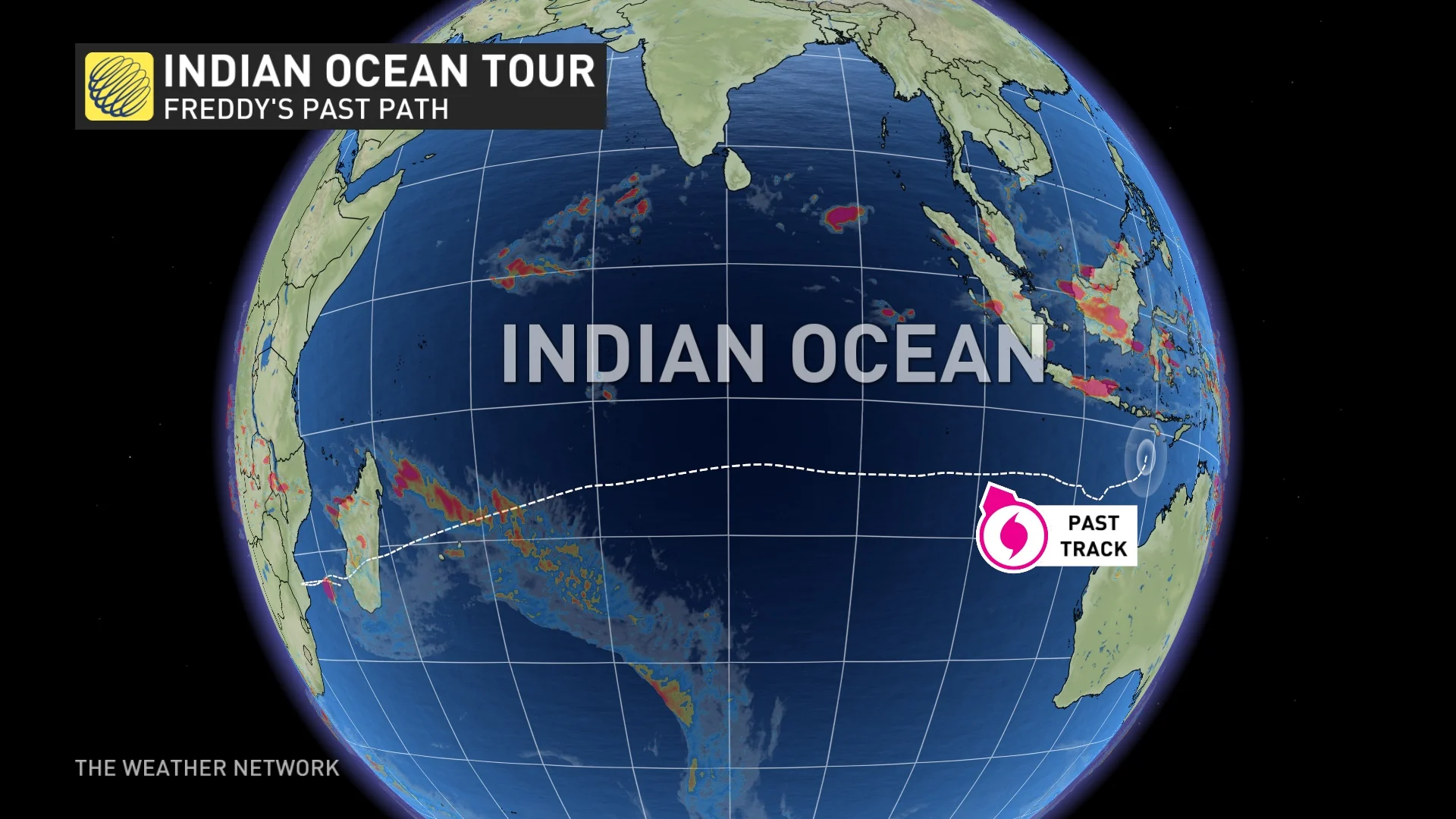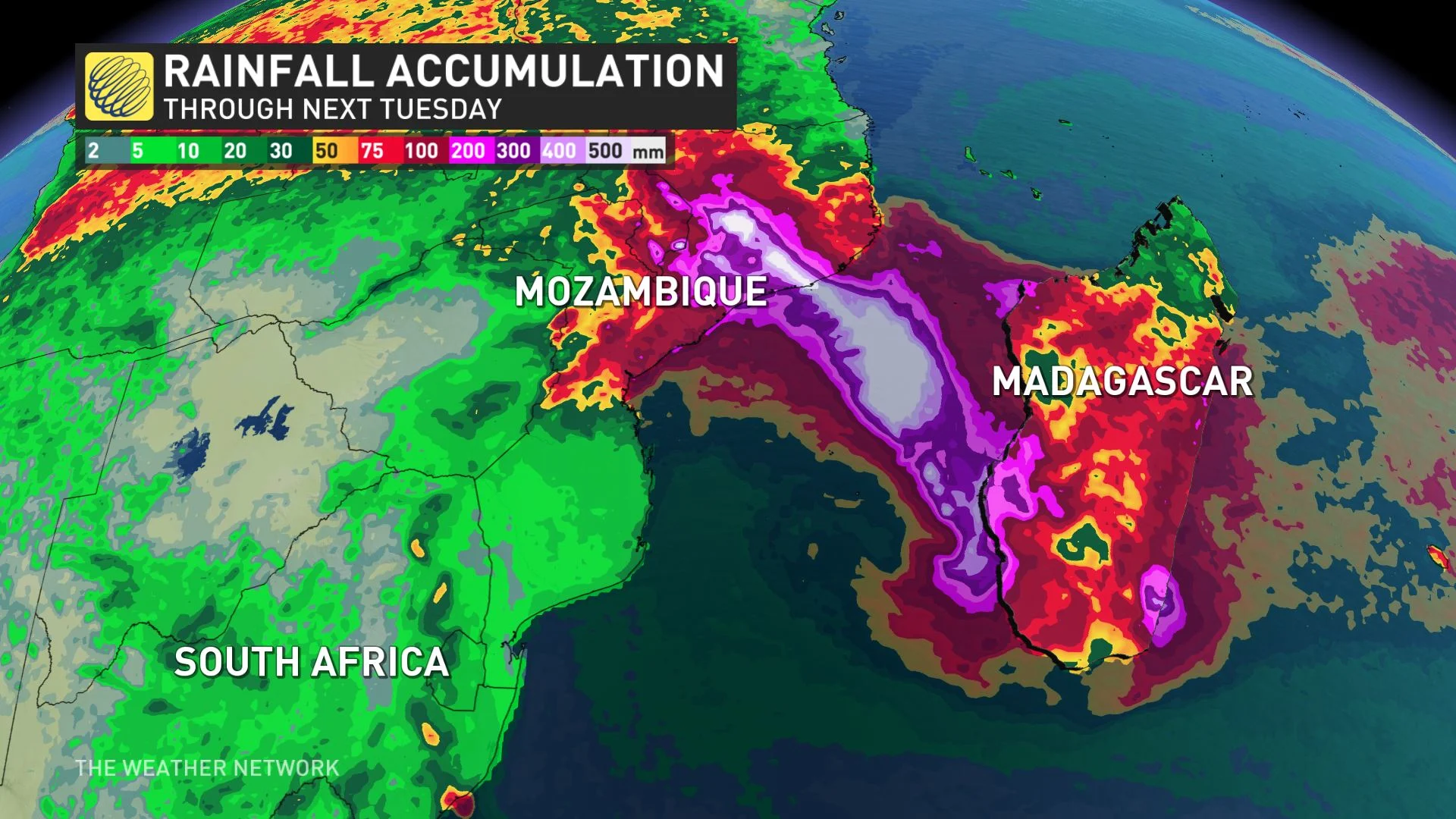
Freddy defies odds as the world's longest-lived, invincible cyclone
Dubbing this storm as “extremely rare” just won't cut it anymore. Freddy is now something never seen before, a truly one-of-a-kind tropical cyclone.
History is being made in the tropical cyclone world. No, this is not déjà vu, and yes, you are reading this right: We are a week into March and still talking about Cyclone Freddy.
Dubbing this storm as “extremely rare” just won't cut it anymore. Freddy is now something never seen before, a truly one-of-a-kind tropical cyclone.
RELATED: Canada's size is no match for this record-breaking cyclone
Signs that this cyclone would be exceptional started on Feb. 3 when Freddy was born northwest of Australia. It rarely traversed the entire 10,000-kilometre-wide Indian Ocean, was 2023’s first Category 5 storm and broke the record for the most amount of cyclone energy ever recorded.

Freddy had made not one but two landfalls to western Madagascar and Africa’s Mozambique, killing several. And still, this storm and its record streak is far from over.
Cyclone Freddy will be the longest-lived cyclone the world has ever documented. In a bit of a showoff fashion, Freddy is forecast to crush the previous record set back in 1994: Hurricane John’s 31-day streak across the Pacific. Freddy will retain tropical characteristics for at least another week. Consequently, it has racked up an extremely puzzling storm track.

Freddy’s forecast movements are more akin to pinball than a tropical cyclone. Currently moving backwards, this cyclone will double dip on Madagascar and Mozambique impacts. Into the early work week, Tropical Storm Freddy aims to graze eastern Madagascar, then head back to Mozambique into the weekend, tallying its landfalls to at least three.
How is this possible?

Upon Freddy’s second landfall, it doused Mozambique with tropical rains for six straight days, then stalled out and weakened. Weakening shrinks the cyclone vertically, allowing local winds to push the cyclone east. A backtrack like this is abnormal as weather systems typically move from east to west in the Southern Hemisphere, but Freddy has moved the complete opposite for six days.
Upon its approach to eastern Madagascar, the storm will likely strengthen into a Category 1 cyclone, grow vertically and interact with the prevailing westerlies. Freddy will travel northwest through the work week, towards Mozambique, yet again. Freddy’s third landfall is forecast by Friday or Saturday.

So, it seems Freddy will continue to be talked about well into March, and with these records, surely beyond.











